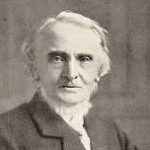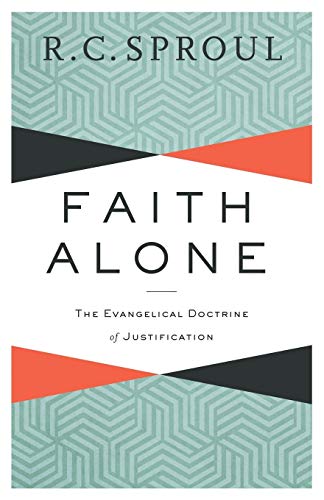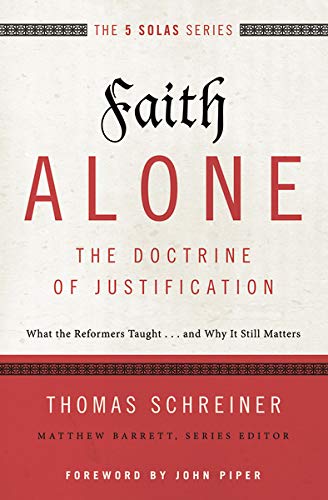Quotes about Faith-Results_of
For I seek not to understand in order that I may believe; but I believe in order that I may understand, for I believe for this reason: that unless I believe, I cannot understand.
Understanding is the reward of faith. Therefore seek not to understand that you may believe, but believe that you may understand.
Faith is not only necessary to salvation, it is also necessary to live a life pleasing to God. Faith enables us to claim the promises of God – but it also enables us to obey the commands of God. Faith enables us to obey when obedience is costly or seems unreasonable to the natural mind.
Copied from The Pursuit of Holiness by Jerry Bridges, © 1996, p. 139-140. Used by permission of NavPress – www.navpress.com. All rights reserved. Get this book!
Assurance is the fruit that grows out of the root of faith.
A Puritan Golden Treasury, compiled by I.D.E. Thomas, by permission of Banner of Truth, Carlisle, PA. 2000, p. 21.
Faith is the instrument that God uses to save us through Christ.
Propitiation by Mark Dever and Michael Lawrence taken from It Is Well, by Mark Dever and Michael Lawrence, copyright 2010, Crossway Books, a division of Good News Publishers, Wheaton Illinois 60187, www.crosswaybooks.org, page 126.
A.H. Strong uses the analogy of the coupling. The coupling joins a train of cars to a locomotive. The coupling has no power in itself. It cannot move a single car an inch. All the power is in the locomotive. But the coupling is the link by which the power of the locomotive is transmitted to the cars. Faith has no power in itself; it is not a ground of salvation; it is not a good work. It is merely that by which all the goodness and grace and glory of Christ comes to the sinner.
But why is faith the means of justification? Simply because it is the action of union with Jesus Christ. Faith is our coming to Him, our trusting Him, our resting in Him. The moment we are united to Him, we are immediately endowed with all that He has secured for us. We are immediately justified before we have done a single good deed, because we are His and He is God’s. Just as a very poor woman is a very poor woman until the very moment that she marries a wealthy man. But at the moment that she becomes his wife, she becomes a wealthy woman. It is by means of her acceptance that she becomes a wealthy woman, but her acceptance does not make her a wealthy woman; it is her husband’s wealth that makes her so. So faith does not justify; Christ justifies. But faith is the act of union with Christ.
Jesus’ gospel of forgiveness is not unrelated to the Bible’s demand for holiness. Obedience is not a “second step” added to our faith, so that “accepting Jesus as Savior” must be supplemented by “accepting Jesus as Lord.” We are not saved by grace and then sanctified (made holy) by our own works. Being a Christian is not a matter of adding our will to God’s, our efforts to His. Rather…”putting away sin,” which is faith in action, is the means to persevering, which we do by depending on Jesus from beginning to end. In other words, repenting from the disobedience of disbelief, and the life of persevering faith that this brings about, which entails obeying God, are all one expression of “looking to Jesus.” One cannot exist without the other… There is only one thing, not two, that we must do to be saved: trust God with the needs of our lives. This one thing in God’s provision (now supremely manifested in Christ) will show itself, from beginning to end, in our many acts of repentance and obedience.
Helplessness united with faith produces prayer, for without faith there can be no prayer.
I believe in Christianity as I believe that the sun has risen, not only because I see it but because, by it, I see everything else.
Faith and obedience are inescapably related. There is no saving faith in God apart from obedience to God, and there can be no godly obedience without godly faith.
Important lessons are given by this alternation of the two ideas of faith and unbelief, obedience and disobedience. Disobedience is the root of unbelief. Unbelief is the mother of further disobedience. Faith is voluntary submission within a person’s own power. If faith is not exercised, the true cause lies deeper than all intellectual reasons. It lies in the moral aversion of human will and in the pride of independence, which says, “who is Lord over us? Why should we have to depend on Jesus Christ?” As faith is obedience and submission, so faith breeds obedience, but unbelief leads on to higher-handed rebellion. With dreadful reciprocity of influence, the less one trusts, the more he disobeys; the more he disobeys, the less he trusts.
As followers of Christ, we often suffer not because we are out of God’s will but because we are in it, not because we lack faith but because we have faith. We suffer not because we need to be filled with the Spirit but because we already are. Stronger faith does not mean less suffering, but more suffering means stronger faith. Far from calling our faith into question, our afflictions result in our becoming more and more like Christ Himself.
When sight ceases, it is the time for faith to work. The greater the difficulties, the easier it is for faith. As long as human possibilities for success remain, faith does not accomplish things as easily as when all natural prospects fail.
The Autobiography of George Muller, 1984, p. 187. All quotations taken from books published by Whitaker House are used with permission of the publisher. Whitaker House books are available at Christian bookstores everywhere. Get this book!
The beginning of anxiety is the end of faith, and the beginning of true faith is the end of anxiety.
The fear of death is ingrafted in the common nature of all men, but faith works it out of Christians.
A Puritan Golden Treasury, compiled by I.D.E. Thomas, by permission of Banner of Truth, Carlisle, PA. 2000, p. 71.
Faith does not require external confirmation but believes God in spite of appearances.
The only proof of genuine faith, then, is fruitful faith – faith that perseveres and leads to a long-term bearing of fruit, a faith that leads to good works.
Faith is shown as genuine when it is brought to completion by our actions.
Faith and works are bound up in the same bundle. He that obeys God trusts God; and he that trusts God obeys God. He that is without faith is without works; and he that is without works is without faith.
A faith which works not for purification will work for putrefaction. Unless our faith makes us pine after holiness, it is no better than the faith of devils, and perhaps it is not even so good as that. A holy man is the workmanship of the Holy Spirit.
Saving faith is a working faith. That faith by means of which we are justified is the kind or quality of faith that produces obedience and the fruit of the Spirit. In the absence of obedience, in the absence of fruit, in the absence of submission to the lordship of Jesus, there is doubt whether the faith is saving.
The Lordship Salvation Debate, November 6, 2006, www.enjoyinggodministries.com. Used by Permission.
The doctrine of Lordship Salvation views saving faith neither as passive nor fruitless. The faith that is the product of regeneration, the faith that embraces the atoning sacrifice of Jesus on the cross energizes a life of love and obedience and worship. The controversy is not a dispute about whether salvation is by faith only or by faith plus works. All agree that we are saved by grace through faith, apart from works (Eph. 2:8-10). But the controversy is about the nature of the faith that saves. According to Lordship Salvation, Sola fides iustificat (faith alone justifies), sed non fides quae est sola (but not the faith which is alone).
The Lordship Salvation Debate, November 6, 2006, www.enjoyinggodministries.com. Used by Permission.
We must distinguish between the content of faith and the consequences of faith. To say that faith issues in good works does not mean faith is good works. To say that works are the expression of faith does not means works are the essence of faith.
The Lordship Salvation Debate, November 6, 2006, www.enjoyinggodministries.com. Used by Permission.
True faith produces obedience, and obedience proves that faith is valid [James 2:21-22].
The Bible recognizes no faith that does not lead to obedience, nor does it recognize any obedience that does not spring from faith. The two are at opposite sides of the same coin
Throughout the world, in nation after nation, men and women have died for their Christian faith. The very least we can do is live for our faith.
Apart from faith in Christ, there is no explanation for such a life.
Faith is seated in the understanding, as well as the will. It has an eye to see Christ, as well as a wing to fly to Christ.
A Puritan Golden Treasury, compiled by I.D.E. Thomas, by permission of Banner of Truth, Carlisle, PA. 2000, p. 102.






















